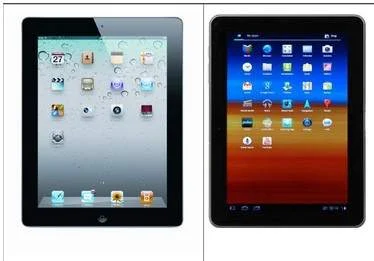It’s quite possible that in the near future, “iPad” will be a generic term that can refer to any tablet.
If you buy store-brand tissues, how often do you still offer your guests a “Kleenex” if they sneeze in your house? How about asking for a “Band-Aid” when you get cut, when honestly you really don’t care what brand of bandage you get?

That could be exactly what happens to the word “iPad” according to a recent piece in the Associated Press. When a brand name becomes so closely tied in to the product, it becomes what’s known in American lexicon as a “generic” or “genericized” trademark.
If that happens with the iPad, it could be a problem for Apple, since consumers will start asking for an “iPad” and be perfectly content if they receive a Galaxy Tab. In their minds, it’s the same thing.
Just because something becomes a ‘generic trademark’ doesn’t mean that anyone can start using the name, though. Obviously HP couldn’t create a new copying machine and call it a Xerox. The company still owns the exclusive rights to the name.
The problem comes with society and the use of the term in the media. If it is determined that the iPad becomes a genericized trademark, Apple wouldn’t have any sort of legal action is a news show referred to an Android tablet as an “iPad”, or if the term was used in a movie or other production without its consent.
So it’s both flattering and problematic.
This isn’t the first trademark problem Apple has seen. It was shot down by a court when it said Amazon’s “Appstore” was infringing on its “App Store” trademark. The court said the trademark was likely not even valid because it’s just a generic term.
It would be like trying to trademark “grocery store” or “electronics store.” Nevertheless, the truth is people associate “App Store” with Apple and they associate iPad with Apple, and that association won’t go anywhere anytime soon.






